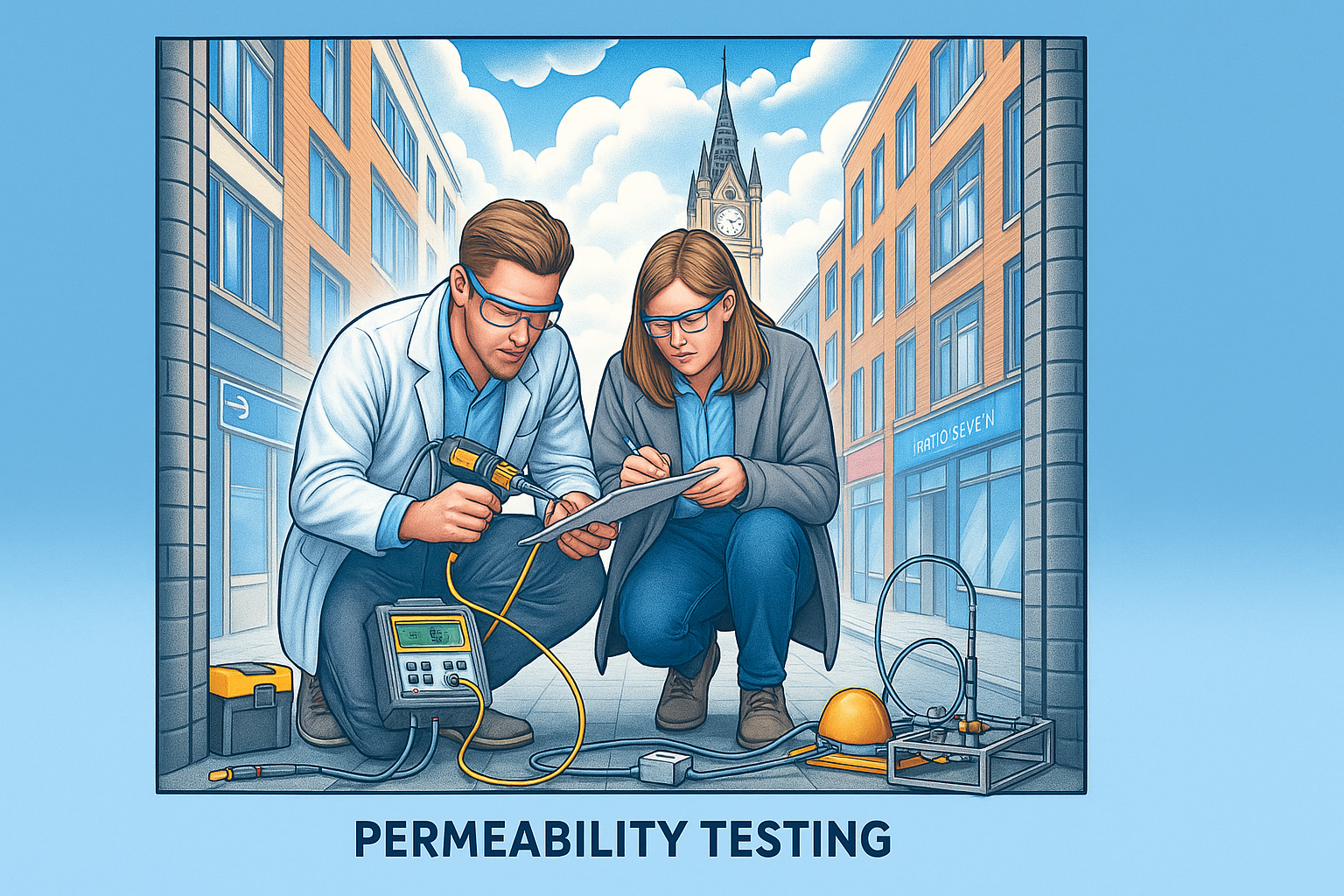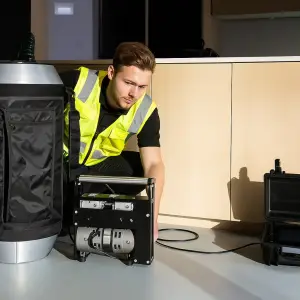Discover Hidden Energy Leaks: Permeability Testing in Leicester
Permeability testing, also known as air tightness or air pressure testing, plays a pivotal role in elevating the energy efficiency of buildings and is increasingly becoming a focal point for property owners and developers seeking to maintain optimal energy use. In Leicester, Ratio Seven is at the forefront of providing state-of-the-art air tightness testing services, ensuring buildings meet stringent regulations and offer cost-effective energy solutions. This comprehensive guide will delve into every aspect of permeability testing Leicester, from its purpose and methodology to selecting the right service provider.
Purpose of Air Tightness Testing
The primary objective of air tightness testing is to determine and quantify the air leaks within a building. Air leaks can significantly undermine a building’s energy efficiency by causing uncontrollable heat loss, adding to energy consumption, and ultimately inflating operational costs. In line with the UK’s Building Regulations Part L1A, regular air tightness assessments are mandated to ensure that buildings achieve the standards necessary to meet environmental and energy efficiency needs.
By identifying these elusive energy leaks, permeability testing not only enables property owners to seal these gaps but also enhances the internal comfort levels of the building. The reduction in energy wastage directly translates into cost savings, making air tightness testing an indispensable tool for ensuring environmentally sustainable construction practices.
Methodology
The process employed in air tightness testing is technical but straightforward. It utilises fan pressurisation to create a differential pressure of 50 pascals between the interior and exterior of the building. This technique, outlined in the ATTMA Technical Standard 1, adheres to global standards (ISO 9972:2015 and BS EN 13829:2001).
Certified testers wield specialised calibrated equipment to gauge how permeable the construction is. By pressurising the building, areas where air escapes are pinpointed with precision, allowing for targeted interventions. This systematic approach not only meets regulatory requirements but also assures stakeholders of the building’s integrity against air leaks.
Benefits of Air Tightness Testing
Incorporating air tightness testing delivers a multitude of benefits that extend beyond mere compliance. Its advantages include:
- Energy Efficiency: Sealing air leaks leads to energy conservation by maintaining a constant internal environment, which reduces the necessity for extensive heating or cooling.
- Enhanced Compliance: Ensures that the construction adheres to present building regulations with an air leakage rate of at most 5 m³/hm².
- Cost-Effective Solution: Addressing air leakage during the construction phase is more economical than post-building completion interventions.
- Improved Building Performance: Boosts the overall performance and sustainability credentials of the building.
Process and Requirements
To ensure optimal outcomes, understanding the required procedures and timing is essential:
- For Single and Multiple Units: Single-building units require testing before final approvals, while multi-unit developments benefit from phased testing during construction.
- Timing Considerations: Conducting tests in conjunction with other evaluations, such as thermal imaging,g ensures cost and operational efficiency.
- Interpreting Results: Results are denoted in m³/hm², capturing air ingress at 50 pascals. A result within 3 to 5 m³/hm² is commendable, ensuring the building’s adherence to efficiency standards.
Selecting the Ideal Tester
Choosing the right air tightness tester is paramount. It is strongly advised to work with an ATTMA (Air Tightness Testing and Measurement Association) registered professional. These testers are methodically accredited and remain up-to-date with the latest ATTMA testing protocols, making them reliable for conducting tests to the highest standard possible.
Ratio Seven’s Comprehensive Testing Services
In Leicester, Ratio Seven champions the cause of conducting high-grade air tightness testing. They offer a comprehensive suite of services that underscore their expertise:
- Certified Expertise: Ratio Seven’s personnel are certified specialists using calibrated tools, ensuring test validity and credibility.
- Stringent Compliance: All procedures align with both ATTMA protocols and current building regulations, reflecting a commitment to excellence.
- Cost-Efficiency: Advocating for in-construction testing stages offers substantial savings and pre-emptively addresses potential issues.
- Assured Pass Rates: With a focus on achieving a 100% pass rate, Ratio Seven ensures your building meets necessary air leakage standards.
By embracing air tightness testing, stakeholders in Leicester are equipped to unearth and rectify energy inefficiencies, thereby augmenting the resultant energy efficiency and performance of their properties.
The Future of Energy Efficiency in Leicester
Developers and property managers in Leicester recognise that sustainability isn’t just a regulatory obligation but a strategic initiative in future-proofing building structures. Permeability testing remains a core element in this endeavour. With an increasing focus on reducing carbon footprints, air tightness testing stands core to the city’s environmental sustainability goals.
Leicester is poised as a trailblazer in energy-efficient construction, with increased uptake of rigorous testing and compliance. As new technologies and methodologies in permeability testing emerge, the city’s infrastructure can only grow more resilient and robust against energy challenges.
FAQs on Permeability Testing
- What is the significance of permeability testing in building construction?Permeability testing holds profound significance in building construction because it enables the identification and elimination of air leaks that compromise energy efficiency. By accurately quantifying air leakage, builders can implement solutions to augment thermal performance, ensuring economic and environmental benefits.
- How does air tightness testing impact energy consumption?Air tightness testing directly affects energy consumption by highlighting areas where energy losses occur due to air leakages. By sealing these gaps, the energy requirements for maintaining optimal indoor conditions are lowered, thus reducing the overall consumption and associated costs.
- Why should one opt for Ratio Seven’s services in Leicester?Ratio Seven is renowned for its accredited and thoroughly competent testing services in Leicester. Choosing them ensures that your property not only complies with legal standards but also realises maximum energy savings through exhaustive and accurate testing procedures.
Permeability testing, championed by Ratio Seven in Leicester, is quintessential in uncovering hidden energy leaks and elevating the energy efficacy of buildings. As Leicester continues to lead in sustainable building practices, this testing remains an indispensable part of the city’s dedication to cost-effective and eco-friendly development. For property owners and developers, air tightness testing is a commitment to enduring energy resilience and excellence.





